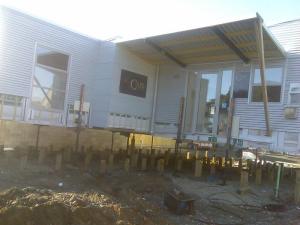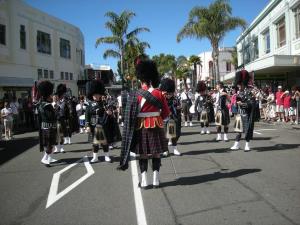My recent post about Joseph and his Techno IPod certainly got a few people thinking but my frustration with politicians and leaders continues to grow as fast as the worsening financial crisis in Europe. An article in the Dominion Post recently had news that Greek politicians wanted to withdraw from the European Union and start printing their own currency. That’s a bit like Labour’s election promises of more benefit money and National’s claims that they can get grwoth going again. It all appears to be fairyland stuff to me.
The problem seems to me to be a cycle of greed and debt so I’ve invented a new word to describe this cycle -greedebt. Coming from the phrase Greek Debt which is going to be an implosion second only to the shock waves that will come out of the collapse of the Italian economy, it describes the economic cycle of growth fuelled by ramapant consumerism generating unrealistic and unnecessary demand paid for by debt which is in turn fuelled by greed which eventually overwhelms the ability of the economy to sustain the growth – hence greedebt. I’m sure the economists in this world will be able to tidy up the definition but let me use some examples to explain.
There is an economic mantra that says all will be solved by growth but as long ago as 1990 John Robinson in his book Excess Capital was describing the paradox of poverty and plenty, how the fruits of human progress are destroying modern society and the environment. “The capitalist system, into which the citizens of the developed markets countries were born, thrives on growth. Once created, capital must be reinvested into some new profitable enterprise. Such a system eventually experiences wobbles when the economy becomes sufficiently prosperous.” I would add to Robinson’s idea the thought that modern society, in all its inventiveness, allowed greed to stoke the fires of growth. How much can any man need? I know we all want more but how much do we really need? So greed, the lust for bigger, better, more helped fuel growth – but at what cost.
As consumerism became the new religion we wanted more but didn’t have the means to pay so the greedy came up with lots of ways for us to have now, pay later. When my wife and I started on our married life we saved to buy a section, eventually built a modest house (with debt of course) and when we moved in our total possessions amounted to a bed, a dining room table and chairs, a fridge, a washing machine and a car. Over time we saved and laid a drive, built fences, erected a car port, bought a clothes drier, got more bedroom furniture for the arriving family and then treated ourselves to a telly. Today when you buy a house the list of things that come with it is extensive. Its a turn-key package paid for with debt in many cases.
At the national level the same thing happens of course. In the Greek economy I am lead to believe that no-one pays taxes, everyone gets generous handouts such as superannuation and all this has been paid for by debt.
Hence my new word greedebt – debt fuelled by greed for more.
The worry is what happens when the house of cards that is the world’s financial system begins to fall? One card at a time, will the house come tumbling down? What does a post capitalist world look like? What will it mean for the average person like me?
So many questions I think I might rush out and buy myself an IPod to satisfy my want for gadgets – booked up on my credit card of course.



